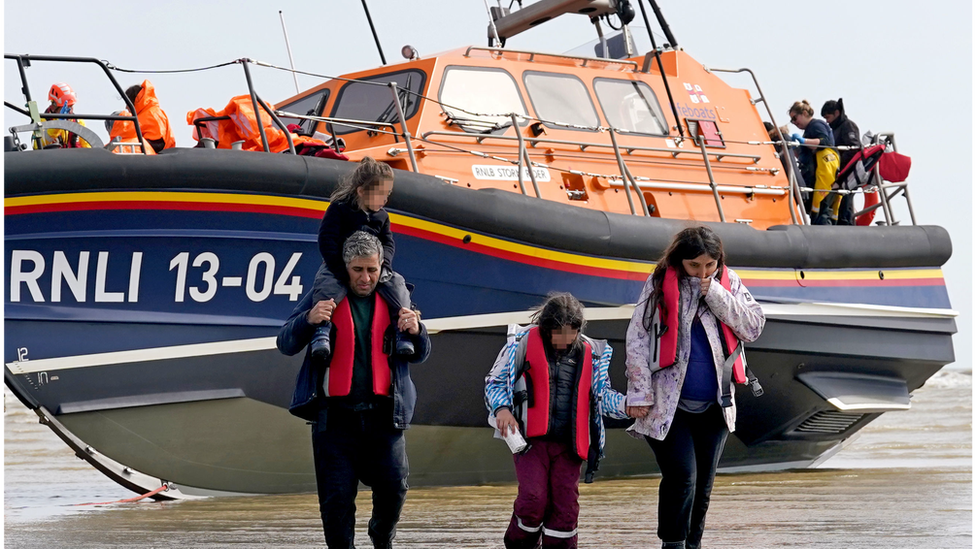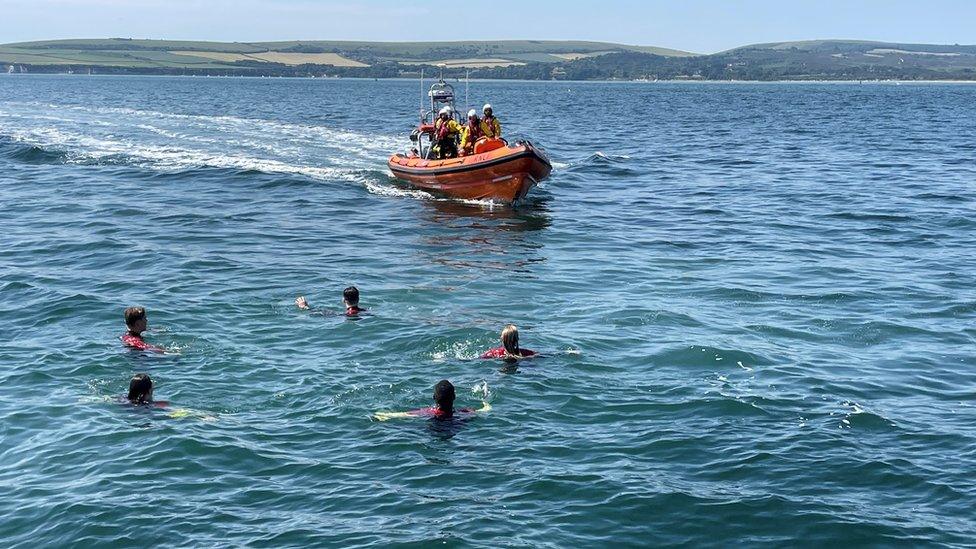Lifeboat crews saved 108 migrants' lives in 2022 - RNLI
- Published

People walk from an RNLI boat on Dungeness beach in April 2023
Lifeboats were launched to rescue migrants in the English Channel 290 times last year, the RNLI has said.
The charity has published details of its work on migrant crossings for the first time.
The RNLI, which has been criticised as running a "taxi service" for migrants, said it had saved 108 lives in the Channel, between France and the Kent coast.
Its chief executive said he made no apology for saving lives at sea.
Lifeboats, which are staffed by volunteer crews, were launched more than 9,000 times around the coast of the UK and Ireland in 2022.
Babies thrown
Rescues of migrants in the Channel were launched 290 times, meaning small boat crossings now make up 3% of the RNLI's work.
Crews are facing increasingly traumatic scenes when they are sent to rescue a small boat.
Simon Ling, the RNLI's head of lifeboats, told the BBC: "We've had babies thrown at our lifeboats, women screaming, men screaming.
"It's a very chaotic situation. Our crews are trained how to manage that and how to quickly get into rescue mode."

An RNLI training exercise in Poole Harbour
A total of 1,100 small boats made the crossing last year, according to a count kept by BBC News, meaning a lifeboat was called to rescue about one in every four of them.
There were some deaths, including when a boat capsized in December, killing four people.
Help from the charity's 238 lifeboat stations is requested by coastguard officers.
Lifeboats from nine stations around the Sussex and Kent coast, from Hastings to Whitstable, are those most frequently involved in migrant rescues.
Income increase
The former UKIP leader Nigel Farage has criticised the RNLI as a "taxi service for illegal immigration", although the response to such public criticism has included an increase in donations.
The charity's annual report for 2022 reveals a net increase in income of 3.5%, some of which came from higher donations - although costs also rose.
Some of the money has been spent on developing a new device called "sea stairs", a floating platform which allows crews to rescue people from the water more quickly.
Mr Ling described the floating platform as a "game-changer".
He said a traditional rescue of a stricken small boat would take about one minute per person, while the sea stairs allowed 20 people to be taken from the water in 90 seconds.
Monday's total of 616 people coming across in small boats means 8,380 migrants have made the crossing so far in 2023.